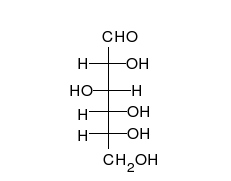Metabolism
(Redirected from Metabolic system)
Metabolism encompasses the myriad of physical, chemical, and biological operations within the body that require energy. This intricate system performs various tasks, from the cellular to the systemic levels. Its understanding provides insights into energy utilization, maintenance, and health implications, both physiological and pathological.
Fundamental Processes of Metabolism[edit | edit source]
The body undergoes numerous metabolic activities, crucial for vitality and functionality. Some key metabolic processes include:
- Respiration: The exchange of gases to sustain life.
- Beating of the heart: Ensuring blood circulates throughout the body.
- Circulating blood: Delivering nutrients, oxygen, and essential molecules to various body parts.
- Controlling body temperature: Maintaining the body's temperature within a specific range.
- Contracting muscles: Facilitating movement and structural support.
- Digesting food and nutrients: Breaking down and absorbing food for energy and growth.
- Basic functions of each cell: Enabling growth, reproduction, and survival at the cellular level.
Basal Metabolic Rate (BMR)[edit | edit source]
The BMR represents the energy quantum a person requires to remain weight-stable, neither losing weight nor gaining weight. It is the minimal energy necessary for essential physiological functions in a resting, post-absorptive state.
Metabolic Disorders[edit | edit source]
Metabolic disorders arise when typical metabolic pathways are disrupted, either due to hormonal imbalances or other factors. This disruption can lead to an excess or deficiency of specific substances vital for health. A prominent example is the metabolic syndrome, often considered a precursor (prediabetes) and can progress to type 2 diabetes through a mechanism known as insulin resistance.
Types of Metabolic Disorders[edit | edit source]
Some prevalent metabolic disorders include:
- Metabolic syndrome: A cluster of conditions increasing the risk of heart disease, stroke, and type 2 diabetes.
- Type 2 diabetes: A chronic condition affecting the way the body processes blood sugar (glucose).
- Hypothyroidism: A condition where the thyroid gland does not produce enough thyroid hormones.
Genetic Disorders of Metabolism[edit | edit source]
Genetic metabolism disorders result from inherited defects affecting specific metabolic pathways. They can lead to an accumulation or shortage of certain substances in the body, causing various health issues. Examples include:
- Acid lipase disease
- Barth syndrome
- Central pontine myelinolysis
- Farber's disease
- Gangliosidoses
- Hunter syndrome
- Hurler syndrome
- Learning about Trimethylaminuria
- Lesch-Nyhan syndrome
- Lipid storage diseases (also available in Spanish)
- Metabolic Diseases of Muscle
- Metabolic myopathies
- Mitochondrial myopathies (repeated)
- Mucolipidoses
- Mucopolysaccharidoses
- Pompe disease
- Type I glycogen storage disease
- Urea Cycle Disease, encompassing Hyperoxaluria and Oxalosis
Factors Influencing Metabolism[edit | edit source]
Various factors modulate metabolism, impacting energy expenditure and utilization. Such factors encompass hormones, medications, nutritional status, growth, age, gender, temperature, and more. A frequently misunderstood metabolic influencer is insulin and its anabolic role in weight gain.
Gallery[edit | edit source]
Search WikiMD
Ad.Tired of being Overweight? Try W8MD's physician weight loss program.
Semaglutide (Ozempic / Wegovy and Tirzepatide (Mounjaro / Zepbound) available.
Advertise on WikiMD
|
WikiMD's Wellness Encyclopedia |
| Let Food Be Thy Medicine Medicine Thy Food - Hippocrates |
Translate this page: - East Asian
中文,
日本,
한국어,
South Asian
हिन्दी,
தமிழ்,
తెలుగు,
Urdu,
ಕನ್ನಡ,
Southeast Asian
Indonesian,
Vietnamese,
Thai,
မြန်မာဘာသာ,
বাংলা
European
español,
Deutsch,
français,
Greek,
português do Brasil,
polski,
română,
русский,
Nederlands,
norsk,
svenska,
suomi,
Italian
Middle Eastern & African
عربى,
Turkish,
Persian,
Hebrew,
Afrikaans,
isiZulu,
Kiswahili,
Other
Bulgarian,
Hungarian,
Czech,
Swedish,
മലയാളം,
मराठी,
ਪੰਜਾਬੀ,
ગુજરાતી,
Portuguese,
Ukrainian
Medical Disclaimer: WikiMD is not a substitute for professional medical advice. The information on WikiMD is provided as an information resource only, may be incorrect, outdated or misleading, and is not to be used or relied on for any diagnostic or treatment purposes. Please consult your health care provider before making any healthcare decisions or for guidance about a specific medical condition. WikiMD expressly disclaims responsibility, and shall have no liability, for any damages, loss, injury, or liability whatsoever suffered as a result of your reliance on the information contained in this site. By visiting this site you agree to the foregoing terms and conditions, which may from time to time be changed or supplemented by WikiMD. If you do not agree to the foregoing terms and conditions, you should not enter or use this site. See full disclaimer.
Credits:Most images are courtesy of Wikimedia commons, and templates, categories Wikipedia, licensed under CC BY SA or similar.
Contributors: Prab R. Tumpati, MD












